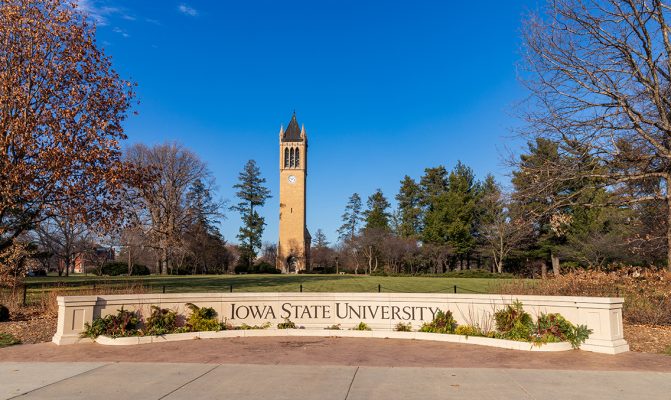Companies continue to struggle to find workers. Over the past year and into 2023, FlexPack VOICE® has been profiling some of the colleges, universities, and schools that developed programs to train people in the packaging industry. In this issue, we talk to Keith Vorst, director of the Polymer and Food Protection Consortium (PFPC) at Iowa State University. The PFPC program is funded by private companies. Vorst received grant funding from federal agencies, as well.
FLEXPACK VOICE®: TELL US A LITTLE BIT ABOUT THE PACKAGING PROGRAM AT YOUR SCHOOL.
Keith Vorst: We are the largest acting research consortium in the country. We work with about 24 companies, and we focus on the design, implementation, safety, and performance of packaging materials. We are a research-directed doctoral program. Our facilities are dedicated to research.
FPV: WHAT ARE THE KEY SKILLS THAT EMPLOYERS ARE LOOKING FOR WHEN HIRING INDIVIDUALS FROM YOUR PROGRAM?
KV: Our big advantage is that we are very technically oriented. People walk out of our program understanding everything from molecular analysis to processing and conversion. The interaction students get with the companies gives them a sense of market demand and business expectations. They work for companies on direct research projects, and they understand the value of getting data and results in a timely fashion. We—including Dr. Greg Curtzwiler, an assistant professor in PFPC—make it very clear to all of our staff, our employees, and our graduate students that companies are asking for solutions. We’re working to help them design sustainability into new packaging material that is cost-effective and commercially available. Being cost effective is huge for the companies we work with. I have to be honest with folks. An idea might seem great, but if it’s not something we can implement within six months to a year and it’s more of a 10-year solution, then it is not something that we can do now.
FPV: WHAT EMPHASIS DO YOU PUT ON FLEXIBLE PACKAGING?
KV: We are a research institution, so we do a lot of work with the federal government, in addition to our private funding, and a lot of them are looking at single-use plastic films. We’re doing an extensive amount of work on recycling and recovery of single-use plastic films. We have patents for flexible packaging, and we have patents on coatings for flexible packaging, and some of them are being commercialized as we speak.
FPV: WHAT DO YOU SEE AS FUTURE CHALLENGES IN THE PACKAGING INDUSTRY?
KV: The biggest issue we have in the packaging industry is the elimination of compounds that are now considered to be environmentally unsafe, such as PFAS (per- and polyfluoroalkyl substances). Another big challenge is integrating more landfill-diverted material back into food-grade packaging. A challenging effort we are working on is bio-based replacements for adhesive coatings that allow for fully compostable systems that still meet packaging performance demands.
